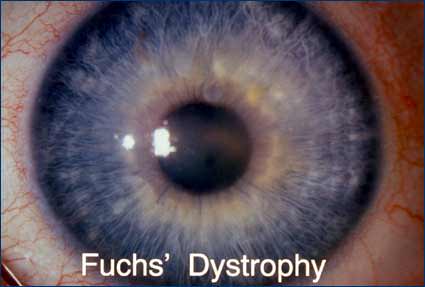Corneal Disease Treatment in Lancaster, PA
- Home
- Corneal Disease Treatment in Lancaster, PA
Also Serving Patients in Lititz, Elizabethtown, and Mount Joy

Many conditions can affect the cornea. These can be divided into the following categories: hereditary (i.e. lattice dystrophy, granular dystrophy, Fuchs’ dystrophy), degenerative (i.e. Salzmann’s nodular degeneration, keratonconus), acquired infectious (i.e. bacterial or herpetic viral infections), autoimmune (i.e. corneal melting due to rheumatoid arthritis). And traumatic (i.e., chemical injuries). Some of the conditions that we see regularly in our office include Fuch’s dystrophy, keratonconus, herpes keratitis and bacterial ulcers commonly associated with contact lens wear.
To varying degrees, corneal diseases will cause a swollen, scarred and/or irregularly shaped cornea. When this occurs, the cornea will scatter or distort light, resulting in glare and blurred vision as well as pain and light sensitivity. In most cases, we can successfully treat the particular cause by topical antibiotics, antiviral agents, steroids, or corneal surgery such as corneal transplantation.


